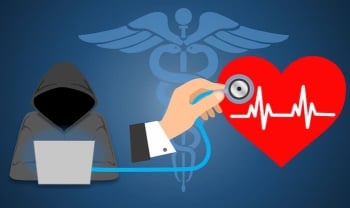Protecting Health Information
Healthcare organizations have the legal responsibility to protect health information, according to the Health Insurance Portability and Accountability Act (HIPAA). This legislation establishes privacy and security rules to safeguard the confidentiality, integrity, and availability of online protected health information (PHI).
Cybersecurity That Supports HIPAA Compliance

Control Access with Multi-Factor Authentication (MFA)
HIPAA’s standard 164.312(d) requires organizations to implement policies to verify that only authorized users access information systems, applications, programs, or files. MFA is the first step in complying with privacy rules and ensuring access control policies that protect user credentials and health information.

Stop Threats with Network Security
Prevent malware of all types with layered security that provides traffic segmentation and delivers traditional intrusion prevention, gateway antivirus, and web filtering, as well as advanced services that block ransomware, novel malware strains, and the loss of sensitive data.

Secure Medical Devices and Protect Data
Healthcare organizations use many connected devices for patient care and administrative purposes. These endpoints require consistent monitoring to secure PHI and enable threat prevention, detection, and response.

Protect Sensitive Information with Encryption and VPN Security
Keeping data encrypted during transit is critical for PHI availability and compliance. Features like drag-and-drop VPN creation protect data transfers between hospitals, urgent care clinics, pharmacies, and physician offices.
Gartner Peer Insights:
Healthcare organizations are constantly innovating to provide quality care for their communities. Building and maintaining a strong cybersecurity posture is an essential element of this process.


